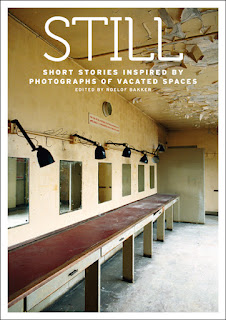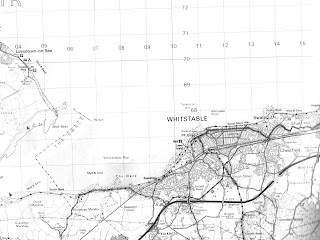I don't usually write about my paid/professional/non-fiction work here, but today I'm making an exception because if you click here:
you'll see a piece by me and lovely photographer
Mike Pinches in
The Guardian's Saturday magazine.
This is triply exciting, because ...
... it just is, if you're a freelance writer
... the piece was terribly hard to pull together (though I hope it doesn't show)
... we thoroughly enjoyed meeting our interviewees and it's a real pleasure to see them and their stories here on the page.
Homesharing's a brilliant, simple idea. An organisation - it could be an local Age UK, a council, a church, or a social enterprise - brings together a person with a spare room who needs a little light support at home, with another person who can offer that support and who needs somewhere affordable to live. Each pays a small monthly fee - far lower than they would pay to a care agency or in rent. The homesharer commits to providing around ten hours' support a week, which they can fit around work or study. The householder has someone to help with daily life, and who sleeps in the house at night. The organisation provides support and security in return for the fees.
So far, so sensible. But what makes homesharing so interesting is the relationships that develop between householders and homesharers, and these are at the core of what makes a successful homeshare so powerful.
It's also what drew us to meet homesharers - though the nuts and bolts matter, it was the relationships which fascinated us. They ranged from courteous and slightly formal, to intimate and full of deep affection, and while matches which work well are the holy grail of homesharing, it became clear that common values and respect go a long way to making for a happy household.
We began work on our homesharing piece last March, when we met Mrs Haar and Joanna. As soon as we met them we knew this would be a great subject - their relationship was complex, and based on an instinctive understanding of hidden boundaries, and we wanted to meet more people in similar situations.
The Guardian liked our pitch and asked for five more interviews. We did another in London, with Marjory and Heather - two people who were a joy to spend a day with - and then hit the buffers. We'd begun the piece at exactly the wrong time. These aren't easy programmes to run because they always involve taking time to get to know the people involved. And time costs money. Government cuts and the pressures on anyone involved in the voluntary sector meant that homeshare schemes were closing faster than we could meet the homesharers they'd brought together.
The schemes in Oxford and West Sussex folded one after the other. Somerset was making no new matches, and nor was Bristol. East Sussex, bucking the trend, was setting up a new scheme, but were clearly uneasy about letting me talk to their new homesharers. Then Age UK Carlisle and Eden put its hand up - it was underway too with a new scheme, and had a match who'd love to talk to us. Off we went to Penrith in the September heatwave to meet Maureen, Ken and Viktorija.
They were great interviewees, but that was it. No more schemes. We could have found more people in London, thanks to the enormously helpful people at Share and Care (who support Marjory and Heather), and Crossroads Care Central and North London (through whom we met Mrs Haar and Joanna), but
The Guardian wanted a spread of people across the UK, and there just weren't any more homeshare schemes.
We did think about going to Paris, which has a hugely successful scheme called
Ensemble2Generations but
The Guardian wasn't keen. It began to look as though we'd have to abandon our piece, despite the great pictures Mike had taken, and the screeds of interview transcriptions in my pc.
At this point, all I can say is what a splendid scheme
CSV is. Not only because their volunteers do amazing work throughout the UK, living in with people with considerable need for support and care (unlike the homesharers, volunteers may provide personal care and usually work around 35 hours), but also because CSV really pulled out all the stops to set us up with three more interviews. Thanks to them we set off for Dunfermline, Milton Keynes and Birmingham in quick succession, and met some amazing people living difficult but full lives with the help of their volunteers, and often discovering lasting friendships along the way.
So hurrah for all the people we met, and all the people who helped us to meet them!
Age UK Carlisle and Eden
Crossroads Care Central and North London
Share and Care
Homeshare International - the umbrella body for homeshare schemes worldwide, with a database of UK schemes
Shared Lives Plus - the UK umbrella body for homeshare and other similar schemes
CSV






















































